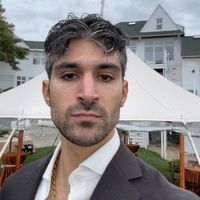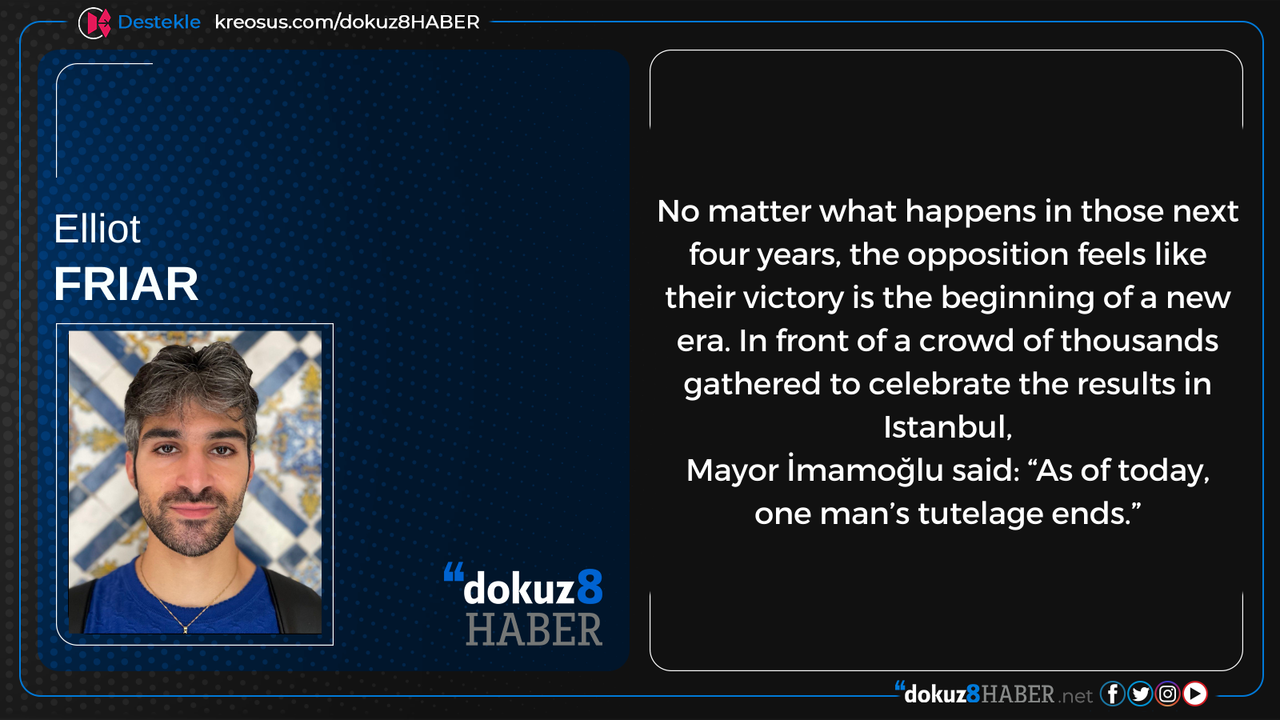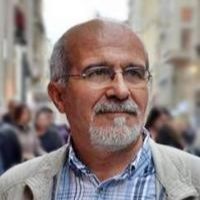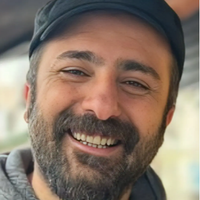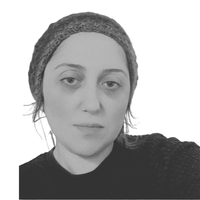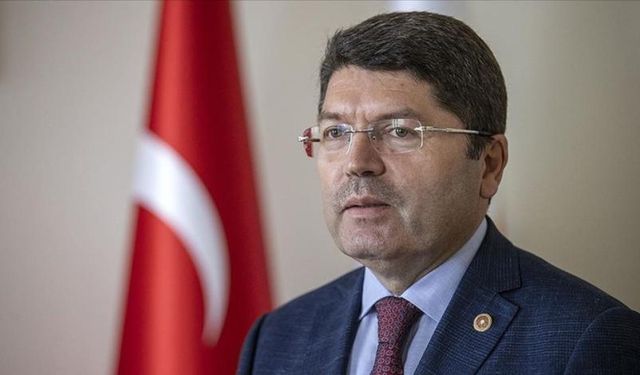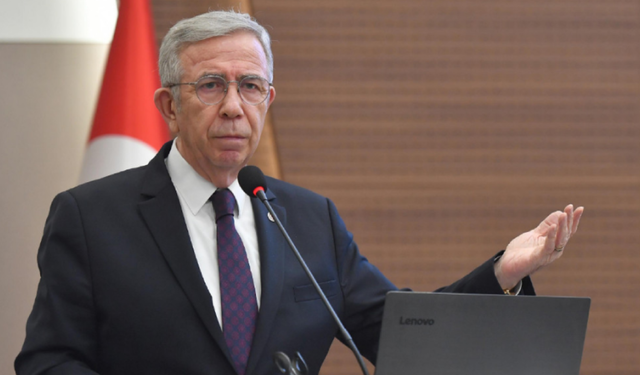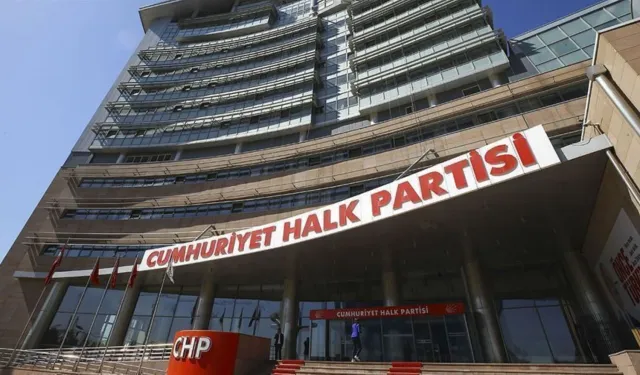If you flip through Western media headlines, they put one story at the center of Turkey’s local elections: The opposition wins, President Erdoğan loses. Here are some under-appreciated takeaways from the elections.
1 - It was a big night for the opposition in big cities, but also in the smaller conservative provinces of inner Anatolia.
The Republican People’s Party (CHP) won the most votes of any party nationwide for the first time since 1977, three years before a military coup and resulting military rule banned the party from 1980 to 1987. Some cities and provinces will see its first CHP leadership in decades — Amasya elected its first CHP mayor since 1977, for example.
Even in large cities, the opposition flipped numerous districts previously viewed as strongholds for the AKP. CHP won in the historically conservative Istanbul neighborhood of Üsküdar, where President Erdoğan, a resident of the neighborhood, claimed victory in the Presidential elections last year.
The rise of Sinem Dedetas, a marine engineer, is a perfect illustration of the opposition’s resurgence. When Istanbul was under AKP leadership, she was banned from entering Halic Shipyard for opposing the government’s plans to replace it with a shopping mall. After Istanbul flipped to CHP in 2019, Mayor İmamoğlu appointed her as the manager of Sehir Hatlari, Istanbul’s storied public ferry service which controls the shipyard. Dedetas worked to increase the revenue of Halic Shipyard, which AKP wanted to privatize and develop, from 1 million to 130 million Turkish Lira. She just won the mayoral race in Üsküdar by 7 points.
All of this throws winds in the sails of an opposition, led by the CHP, that has become more or less accustomed to losing in the face of incredibly unfair conditions. Young voters across the country are feeling victory for the first time.
2- Candidate quality really matters.
In two of the most widely watched elections, in Istanbul and Ankara, the AKP candidates were simply weak. Murat Kurum — the AKP candidate in Istanbul — failed to convince voters he would reject President Erdogan’s Canal Istanbul project, which would turn Istanbul into an island. Kurum instead attacked Kent Lokantaları, a municipality-owned and operated, low-cost restaurant chain popular in AKP strongholds and opened by opponent Mayor Imamoglu. In the final days of the election, Kurum announced he would open a new metro line. The metro line was opened by Mayor İmamoğlu in March.
In Ankara, CHP Mayor Mansur Yavaş controlled the narrative of his hard-right Islamist nationalist AKP opponent, Turgut Altınok. While Yavaş disclosed personal wealth, Altınok initially refused to share information about his private business dealings which are believed to be vast — fanning flames of corruption and cronyism that increasingly are associated with AKP after 20 years ruling the national government. He then caved by publishing vast real estate assets on social media. A journalist reported additional assets, including 600 apartments in Antalya. Altınok denied the reports, claiming “property belongs to God.” Secular social democratic Yavaş won by a shockingly large margin of nearly 30 points.
Candidate quality goes both ways. In Hatay, a province heavily damaged by last year’s earthquakes, the incumbent CHP Mayor Lütfü Savaş narrowly lost the election to his AKP opponent. Savaş and his administration were implicated in the slow and uncoordinated response to earthquakes last year.
3- The opposition won despite how unfair the elections were.
Ragip Soylu, a journalist, posted on social media: “How will those who have consistently argued that Turkey’s elections lack freedom and fairness account for Erdogan’s loss in the mayoral elections now?” It should go without saying that just because the systematically disadvantaged underdog wins, does not mean the race was fair. Politicians remain answerable to the mass public despite attempts to manipulate outcomes.
Days before the elections, Haber-Sen, a media union in Turkey, announced data illustrating the deep unfairness of the elections. Over 40 days on state-run media TRT, President Erdoğan received 1945 minutes of screen time. The opposition party’s chairman (CHP) was on screen for just 25 minutes during the same period. There was zero screen time for the co-chairs of the DEM party, a pro-Kurdish left party. Over 24 hours on March 19th, CHP mayors from Turkey’s two largest cities — İmamoğlu and Yavaş — had zero screen time. Erdoğan and candidates from his party had over 6 hours of screen time on TRT during the same period. Media is not the only lever of manipulating the playing field. Both İmamoğlu and Yavaş were legally challenged ahead of the elections, threatening their ability to run in elections.
4- Citizens were more united against AKP than elite opposition, including Kurdish people.
The opposition itself perhaps contributed to the unfairness of the election. Key opposition parties across a wide ideological spectrum failed to form an alliance, as they had done in the previous local elections, with individual parties nominating their own candidates. Despite this elite fragmentation, results clearly show citizens are more united against Erdogan and his ruling AKP than the elite opposition. In Istanbul, where over two million ethnic minority Kurdish people live, the pro-Kurdish left DEM party candidate received less than two hundred thousand votes at the time of writing. Low turnout, with Kurdish voters choosing to sit the election out, does not explain this — the city had nearly 80 percent voter turnout.
Mayor Imamoglu mentioned his opposition party’s coalition, or “the ancient colors of this city,” in his victory speech. “The Kurds, Alevis, Armenians, Circassians, and the people of Istanbul who came here from all across Anatolia will freely defend their rights. All the flowers of Istanbul and Turkey will bloom strongly again in this city,” İmamoğlu said.
5- An ultra far-right Islamist nationalist party won the 3rd most votes nationwide.
Although videos went viral on social media of voters chanting, “Turkey is secular and will remain secular,” after CHP victories, another resurgence simmered not far from the surface. The “New Welfare Party” (YRP), a far-right Islamist nationalist party, earned the third most votes nationwide and won a number of municipalities. This is in part from Kurdish voters supporting CHP rather than the pro-Kurdish DEM Party, the third largest party in Parliament
Party chairman Fatih Erbakan attempted to win over disillusioned Erdoğan supporters leading up to the election, attacking the AKP government for continuing trade with Israel after alleged war crimes in Gaza. It may have worked. YRP is an offshoot of the original “Welfare Party,” which led a historical win for political Islam in the country during the 1994 local elections.
6- National incumbents are deeply unpopular worldwide. Turkey may no longer be an exception.
In democracies including the United States, United Kingdom, and Japan, among others, incumbent national leaders are deeply unpopular. In Poland, this led to the defeat of a right-wing government and ascent of liberal, pro-European Prime Minister Donald Tusk. In France, recent polling suggests liberal President Macron’s party is losing ground to right-wing populist National Rally, led by Marine Le Pen.
For Turkey, another European country, dynamics of inflation and cost-of-living are likely more exaggerated. Erdoğan promised to bring down inflation after winning re-election last year, but inflation remains high and the Turkish Lira is near historic lows. While Erdoğan pulled the stops to win over voters last time around, including increasing monthly pension payments more than the rate of inflation, no such tricks were pulled ahead of the local elections.
Amidst higher interest rates and heightened government borrowing costs, the AKP government instead increased pension payments less than the rate of inflation — directly decreasing standards of living for millions of retirees. Years of economic struggles may have finally caught up with the ruling party.
7- Erdoğan was not on the ballot. How much of this was about him?
If you flip through the Western media headlines about the elections, most of them put one man at the center: President Erdoğan. The AKP chairman has led the country for over 20 years and most recently won nationwide elections just 9 months ago. These elections show there are limits to the success of AKP when Erdoğan himself is not on the ballot, his political skills not easily replicable in candidates who have climbed the increasingly loyalty-based and business-driven party ladder.
In a speech, Erdoğan accepted the results and claimed they proved the health of Turkey’s democracy, categorized as an electoral autocracy by V-Dem, a Swedish institute. This will be music to American President Joe Biden’s ears, who Erdoğan will visit for the first time in Washington next month. However, Erdoğan has more than four years until the next Presidential elections and will be further entrenched as the Republic of Turkey’s longest-serving leader.
No matter what happens in those next four years, the opposition feels like their victory is the beginning of a new era. In front of a crowd of thousands gathered to celebrate the results in Istanbul, Mayor İmamoğlu said: “As of today, one man’s tutelage ends.”
